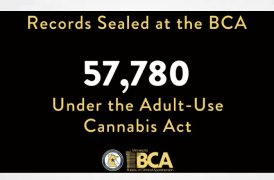Bloomberg have published the following piece
Amid the rapid growth of the cannabis industry, trademarks remain a thorny issue for cannabis companies. As the companies continue to grow, many are confronting two related needs: protecting their own brands through trademark, and avoiding becoming a target of potential trademark infringement claims.
Source: https://news.bloomberglaw.com/ip-law/how-cannabis-companies-can-protect-their-trademarks
Federal Trademark Registrations for Cannabis
The U.S. Patent and Trademark Office (USPTO) oversees registration of federally recognized trademarks. It issued guidance in 2019 that stressed that the use of a trademark must be “lawful” under federal law. Under that guidance, the USPTO found that marks for marijuana violate federal law, and therefore, cannot be federally registered.
By contrast, the USPTO determined that marks for hemp-derived CBD products containing no more than 0.3% tetrahydrocannabinol (THC)—the substance most associated with a cannabis “high”—are lawful under the 2018 Farm Bill.
With respect to food products, the USPTO deferred to the Food and Drug Administration, which has held that it is illegal under federal law for CBD to be added to food or dietary supplements.
Use of Famous Marks Under Scrutiny
Cannabis companies should be attuned to the potential for trademark-related disputes, especially with the current unavailability of federal trademark registration. Such disputes can take the form of cannabis companies on the defensive, fielding allegations that they are infringing or tarnishing an established mark, or suing to enforce their own mark.
With the industry’s growth, companies are increasingly under scrutiny for their use of—or reference to—famous marks, which is not an uncommon practice in the cannabis space. Especially given the legalization of marijuana products in many state jurisdictions, the additional public attention to cannabis means that companies (and their use of trademarks) are easier to find.
Companies experiencing a growth in sales may be a target for brands looking to make a statement and enforce their marks. Conversely, cannabis brands looking to establish and protect their market share may want to enforce their own marks against competitor products.
Growing Infringement Lawsuits
As larger, established brands enter the cannabis space, especially with products containing CBD, trademark infringement suits are expected to become more common. Many large companies are likely to enter markets traditionally populated by products with cutesy names, references to popular culture, or similar sorts of branding that have characterized the cannabis market for years.
For example, a recent case saw the attempted registration for “The Toking Dead” challenged by the trademark owner of “The Walking Dead.” In that case, “The Walking Dead” emerged victorious given the likelihood of consumer confusion because of the similarities between the marks, and that the goods and services bearing such marks might be offered to the same classes of consumers via the same channels.
Trademark infringement allegations can come in many flavors. One type of claim most relevant for cannabis companies is the concept of dilution by tarnishment, which is an association between a mark that harms the reputation of a famous mark. Tarnishment claims generally must clear a high bar, such as when the mark is associated with obscenity, sexual activity, drugs, or illegal activity.
As more and more large brands extend their lines to incorporate cannabis, existing cannabis companies should be aware of the potential risks posed by trademark infringement.
Options to Protect Brands
Even in the absence of federal trademark registration, cannabis companies have several options to protect their brands. These include, but are not limited to:
• Seeking federal trademark registration for related goods and services. Although obtaining a mark for cannabis itself might be problematic, consider whether ancillary goods and services that do not contain a federally unlawful substance could be eligible for federal trademark registration, thereby providing some brand protection. This approach may have its drawbacks, however. As demonstrated in a recent case concerning the mark “Woodstock,” the USPTO often requires companies to declare that ancillary products, such as vaporizer pipes, rolling papers, or glassware, will not be used to market marijuana. Showing that such products will be used apart from the illegal offerings might be challenging for some companies.
• Obtaining state trademarks. Owners of marijuana-related businesses may be able to take advantage of state trademark rights, meaning that even federally unlawful marijuana products might be eligible for state trademark protections, especially in states such as Washington where laws are more favorable for cannabis companies. But important limitations exist for state trademark protection, namely that a state trademark protects marks only within that state’s geographic boundaries.
• Assessing contractual language. Cannabis businesses often work with third parties to sell, distribute, or market their products. To mitigate the risk of these third parties asserting ownership rights over the cannabis company’s intellectual property, consider drafting contractual provisions that expressly set forth the company’s ownership interest in all intellectual property regarding the company’s product. Drafters also should keep in mind strategies to mitigate the risks that a party to the contract might use an illegality defense to avoid their obligations under the agreement, such as favorable forum selection clauses and a properly drafted severability provision.
The steps outlined above may reduce but will not eliminate the risk of a trademark issue, especially as the number of such infringement allegations are likely to increase with the growth of the cannabis industry. Legal counsel can assist companies in establishing and maintaining compliance with best practices with respect to trademark use, registration, or potential infringement.
This column does not necessarily reflect the opinion of The Bureau of National Affairs, Inc. or its owners.
Write for Us: Author Guidelines
Author information
Will Rava is a partner at Perkins Coie’s Seattle office and former chair of the firm’s trademark and copyright litigation practice. He has successfully litigated intellectual property disputes in federal courts across the country, before arbitration panels under the UDRP, and before the Trademark Trial and Appeal Board.
Cheryl Zak Lardieri is a senior counsel in Perkins Coie’s Washington, D.C., office and a member of the firm’s Cannabis Industry group. Her practice focuses on complex commercial disputes, consumer class action litigation, intellectual property, as well as appellate practice.
Tommy Tobin is an associate in Perkins Coie’s Seattle office, where he focuses on matters involving statutory, constitutional, and regulatory issues in a range of industries, including food and beverage, health care, and pharmaceuticals. He is co-chair of the American Bar Association’s Food, Cosmetics, and Nutraceuticals Committee.
Bria Cochran is an associate in Perkins Coie’s Washington, D.C., office. She has worked on a variety of matters including products liability, white collar and investigations, higher education, employment, privacy and data, antitrust, and insurance.


















